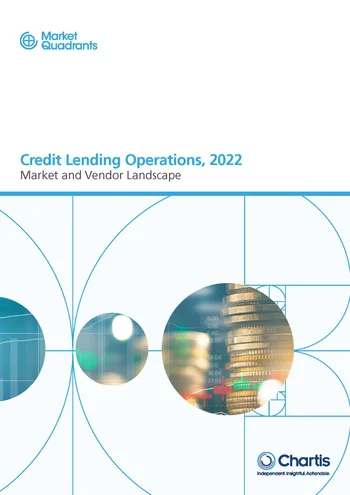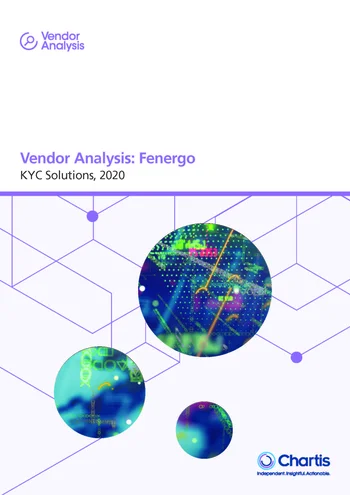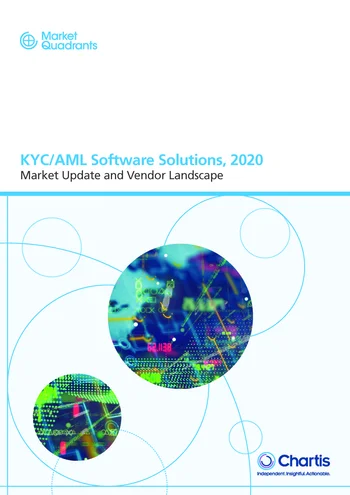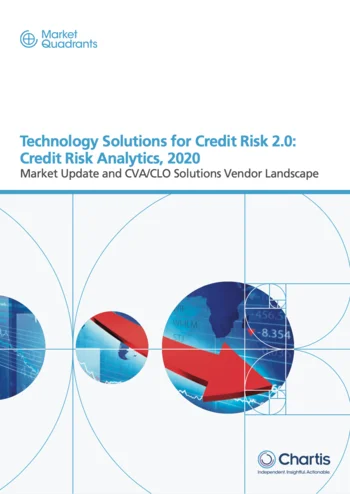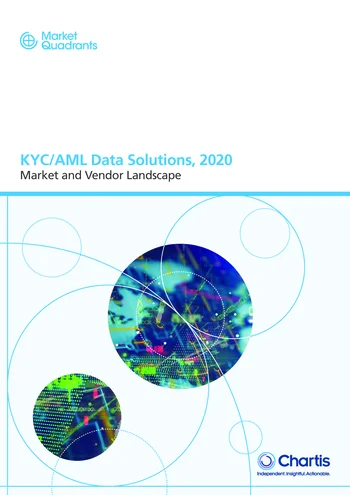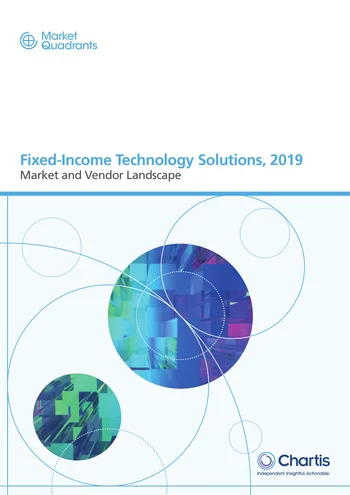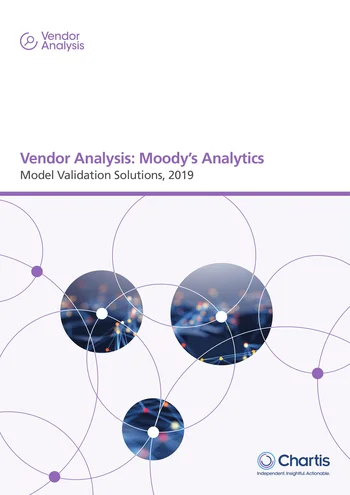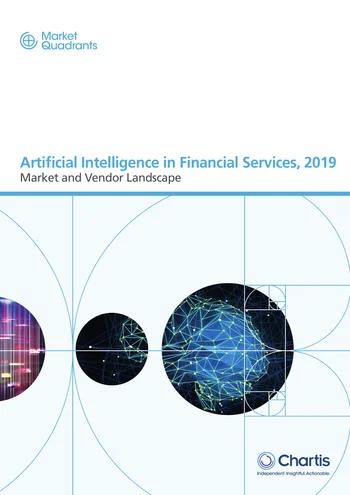Artificial intelligence (AI)
Financial Crime Risk Management Systems: Watchlist Screening and Monitoring Solutions, 2022; Vendor Landscape (Part II)
This second installment of the 2022 watchlist screening and monitoring report examines three key sub-segments of the vendor landscape. Contains three RiskTech Quadrants.
KYC/AML Data Solutions, 2022: Market Update and Vendor Landscape
This update outlines the key trends and dynamics in the market for Know Your Customer (KYC) and anti-money laundering (AML) data solutions and provides a snapshot of the vendor landscape. Contains one RiskTech Quadrant.
Credit Lending Operations, 2022: Market and Vendor Landscape
This report outlines Chartis’ view of the market and vendor landscape for credit lending operations in the banking book, covering loan origination systems, limits management systems and collateral management systems. Contains three RiskTech Quadrants.
RiskTech100 2021 Vendor Analysis: Broadridge
An independent evaluation and description of the ranking given to Broadridge in Chartis’ RiskTech100® 2021 report, with a focus on its fixed-income solution.
STORM50 2021
This, the inaugural STORM50 ranking and analysis, focuses on the computational infrastructure and algorithmic efficiency of the vast array of technology tools used across the financial services industry. In this report we explore specific aspects and…
Vendor Analysis: Fenergo – KYC Solutions, 2020
An analysis of Fenergo and its KYC software solution.
As active/passive investment tides turn, FinTech is key to success
Current market volatility is ushering in a resurgence in active fund management, while asset owners are demanding more digital-driven access and transparency. To achieve the necessary active/passive balance and meet investors’ demands, new FinTech tools…
KYC/AML Software Solutions, 2020: Market Update and Vendor Landscape
This report updates our previous KYC/AML quadrant reports. It examines financial institutions’ (FIs’) evolving technology requirements for Know Your Customer (KYC)/anti-money laundering (AML) processes and systems.
Firm foundation: aligning hardware and software is vital for effective AI
Financial firms neglect the hardware for AI tools at their peril. But even as chips and system architectures evolve, trade-offs remain. When it comes to hardware, firms need to know what to balance with what, to avoid being lumbered with fragmented IT…
Technology Solutions for Credit Risk 2.0: Credit Risk Analytics, 2020; Market Update and CVA/CLO Solutions Vendor Landscape
This report builds on the themes discussed in Technology Solutions for Credit Risk 2.0, 2018, published in May 2018. In that report we identified an emerging credit risk environment – which we call Credit Risk 2.0 – in which the banking book and default…
KYC/AML Data Solutions, 2020: Market and Vendor Landscape
This is Chartis’ first dedicated report covering Know Your Customer (KYC) and anti-money laundering (AML) data solutions. It outlines the key trends and dynamics in the market and provides a snapshot of the vendor landscape.
Smart thinking: mitigating renewables-linked price risk with neural networks
Failing to incorporate renewable energy sources effectively into power networks can create serious issues around energy pricing and forecasting. Some neural networks can mitigate renewables’ intermittency, but require the right expertise and data.
More Than Just Policy: Effective Model Risk Management in a New Age
This report – a collaborative publication from Chartis and ClusterSeven – examines a crucial period of activity for MRM users and sellers. It considers what MRM now means in a post-IFRS 9/CECL world, and how FIs can develop effective MRM solutions in…
Is more data, and less math, a good thing in modern models?
Now that Big Data is mainstream, model developers face an epistemic trade-off: enable models to make more accurate predictions by loosening traditional statistical methodologies. But what impact might this have on the future accountability of our…
Meaning is everything: the problem of defining ethics for AI algorithms
Developing AI algorithms without strict definitions could create ethical problems for financial firms. To avoid mishandling their algorithms and potentially harming certain customer groups, firms must ensure their AI tools are no broader than the…
Chartis Big Bets 2020
Welcome to Big Bets, a briefing from Chartis Research in which we explore the five big themes we believe will shape the RiskTech marketplace in 2020.
The State of AI in Risk Management
Spotlighting collaborative research between Chartis and our research partner Tata Consultancy Services (TCS), the report analyses the adoption of AI tools by risk departments across financial services.
Fixed-Income Technology Solutions, 2019: Market and Vendor Landscape
The landscape for fixed-income solutions is a complex one, shaped by a variety of economic, geographic and cultural factors. This complexity is creating wide differences across different segments of the market - notably bonds, securities and loans - in…
Breaking the glass box: achieving ‘explainability’ that actually explains
Tied to the growing popularity of machine learning (ML) tools is the need to explain their underlying rationale. But buzzwords, like ‘glass box’, are steering the explainability conversation off course. Meanwhile, without proper investment in the tech…
Regulators need a robust taxonomy of tools before tackling AI
Regulating AI is a challenge that must and will be faced. Central to effective regulation will be a robust, accurate taxonomy of the multiplicity of available AI techniques.
Artificial Intelligence in Financial Services, 2019: Market and Vendor Landscape
AI is an increasingly important feature of today’s RiskTech marketplace. Chartis has addressed the AI opportunity in various reports and events over the last 18 months, and in this new report we provide a spotlight on the market and vendor landscape for…


